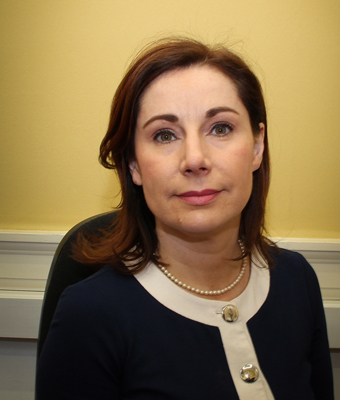Last week, Minister for Education Josepha Madigan took the extraordinary decision of naming four schools which, to her mind, are refusing to provide an education to children in their communities with special needs.
In doing so, she did an enormous disservice to the children who attend those schools, including the many children with special needs already enrolled in them. She chose to turn children without adequate educational options, due to state failure, into weapons in a battle for public opinion, positioning herself as a plucky defender of the vulnerable battling against selfish and old fashioned school principals.
In that context it is worth considering for a moment the actual state of inclusion which our plucky Minister has provided for in Irish schools.
It should come as no surprise to anyone that special education is underfunded, or that our education system is generally underfunded. The 2008 crisis was used as an opportunity to undermine every public service in our country, and to drive down the wages and security of public sector staff.
There are, of course, Irish schools which are not inclusive. But our current government is uninterested in economic inclusion and so those schools will not be named and shamed.
And the four schools shamed by the Minister are in any case certainly not them.
Three of the four schools listed by the Minister are DEIS schools, whose pupils have been on the front line of government cuts to public services and a manufactured housing crisis.
In one of the schools, English is the second language of 85% of pupils, in a context of chronic under provision of support for language acquisition for those learners. Many of Ireland’s most affluent schools have no children enrolled whose first language isn’t English.
In 2019, the Irish Primary Principals Network estimated that one in four primary schools had homeless pupils enrolled, who lived in hotel rooms with parents and toddlers and traveled exceptional distances to school each day on little sleep. Many of these schools are found in the areas of the schools “shamed” by the Minister.
In other words, these are schools whose staff and communities have been battling for inclusion on every front without notice or support for many, many years. Meanwhile, successive governments have failed to increase funding for special education as populations grew, failed to provide SNAs – whose work is central to meaningful inclusion – with any type of job security or respect, and failed to listen to schools who talked about the urgent needs for psychological services to support children who had been abandoned by the state.
Irish schools are segregated because Dublin is segregated. Inclusion does not exist because it is not in the interest of any Fine Gael Minister to ensure sufficient public funding to schools where parents cannot fundraise or pay a “voluntary” contribution to cover the costs of basic supplies.
No Fine Gael Minister will name and shame those schools where no parent is unemployed, where no child is homeless, and demand that they reallocate funding to ensure an inclusive school.
No Fine Gael Minister will build affordable public housing on the doorsteps of Dublins most affluent schools to try and end the epidemic of educational inequality in the capital.
In other words, no Fine Gael Minister has the remotest interest in educational inclusion. They do have an interest however in press releases, media opportunities and looking good in front of their European peers. So, they have initiated a box ticking exercise involving scapegoating those schools already bearing the brunt of government failures to tackle the crisis of inclusion in our schools.
Irish primary principals and schools on the other hand have an interest in inclusion; in particular those who, like those named by the Minister, work every day with children left behind and ignored by successive governments.
Those principals understand the actual needs of their current pupils, and the chasm between those needs and the funding and resources which the state will provide. They understand that, every time a public service is cut, more children come to school hungry, tired and anxious, requiring more intensive teaching resources and attention.
They have made a decision that, like so many of our public services, their capacity to provide decent education is at breaking point in the absence of any meaningful government support.
The failure of this government to provide for the educational needs of children with additional learning needs will not be fixed by tacking underfunded classrooms onto schools already exploding at the seams with educational needs.
The story of Madigan versus Schools is not a David and Goliath battle of a scrappy Minister taking on the big bad elitist and exclusionary primary school principals.
Schools want inclusion. The way to provide inclusion is to fund schools properly, and to fund public services so that a school is not expected to provide every complex need required by children living tough lives.
In other words, it costs money. Principals should not need to defend their decision not to spread what little money and staff they have available even more thinly.





